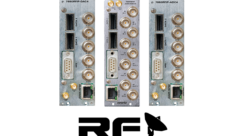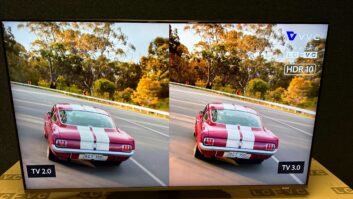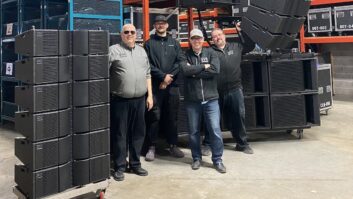Licensing Issues Divide Industry Associations
Nov 8, 2006 4:45 PM
InfoComm, the National Systems Contractors Association (NSCA), and the Custom Electronic Design and Installation Association (CEDIA) have cooperated over the years in ventures like the Integrated Systems exhibitions in Europe and Asia, and they may well continue their collaboration in the future.
But recent developments much closer to home have highlighted a rift between the groups. At issue is the prospect that state legislatures may be persuaded to require licensure of low-voltage electronic technicians.
In late October, a legislative committee in Nebraska unanimously rejected a proposal to study “matters relating to the licensing and regulating of electronic systems technicians.”
InfoComm Executive Director Randal Lemke says this proposal is similar to another promoted by NSCA and CEDIA in the New Hampshire legislature last spring, and all of these efforts are part of a campaign to “mandate” NSCA’s Certified Electronic System Technician (EST) program as the basis for state licensing.
“In Lincoln, it was obvious that there is no salient public policy justification for studying or implementing mandatory EST licensing or state certification programs,” Lemke says in a published statement. Lemke, a native Nebraskan, also went before the committee.
The CEDIA/NSCA state legislative initiative, Lemke adds, amounts of an effort “to create a competitive marketing advantage for EST over many other generally accepted programs, such as those offered by BICSI, InfoComm, the National Burglar and Fire Alarm Association, and others.”
Not so, retorts NSCA. “This legislation did not attempt to mandate the licensure of electronic systems technicians or any one specific certification program,” says NSCA’s government affairs director, Dave Johnson. The proposed bill “did not give anyone a competitive advantage…it did not create anything. This legislation discusses no industry or association involvement and is simply a legislative study bill.”
At CEDIA, Board President Ken Smith and Executive Director Don Gilpin asserted that “The word ‘mandate’ cannot be found in any document nor has it been used by any CEDIA professional during testimony. Our position maintains an open door of communication and a partnership with different associations in the electronics industry.
“Any association or business that has a certification or training program would have been welcome to submit their program for state approval, including InfoComm,” the CEDIA statement goes on. “In no way was this bill intended to accept CEDIA or NSCA education as the only accepted certifications or to restrict a person’s business.”
Lemke further portrays the NSCA/CEDIA legislative strategy as an attempt “to salvage a certification program, produced at considerable expense, which the industry has rejected. Unable to convince their memberships and other industries to invest in this program, they seek to create state mandates for it.”
NSCA’s Johnson, though, says that far from mandating participation in a specific association’s credentials program, NSCA and CEDIA have been trying to fight off numerous efforts in state legislatures to enact highly disadvantageous licensing laws. “This could lead to our members…being licensed by a board of electricians with no representation from our industry,” Johnson says.
As a result, he adds, “there is monumental justification for studying these issues in the legislature.”
Looking to the future, Johnson says NSCA “will continue to leave the door open,” and Lemke concludes: “Over the years we have worked together in many ways, and we would like to see that cooperative spirit revived.”










